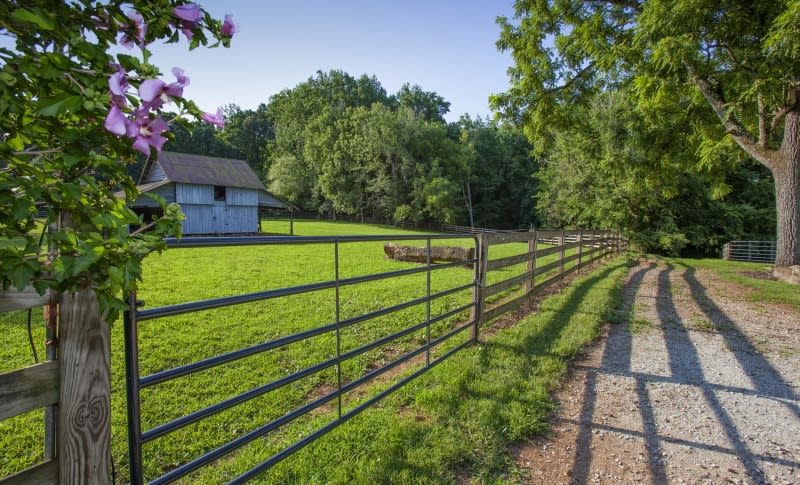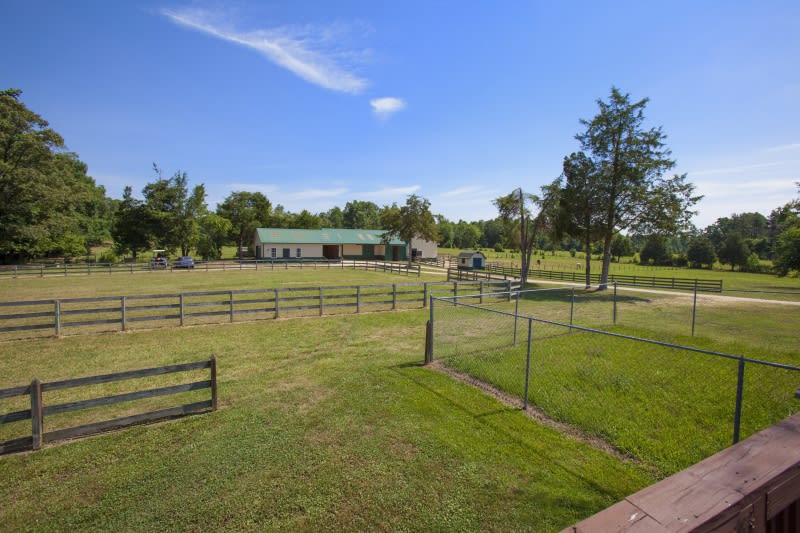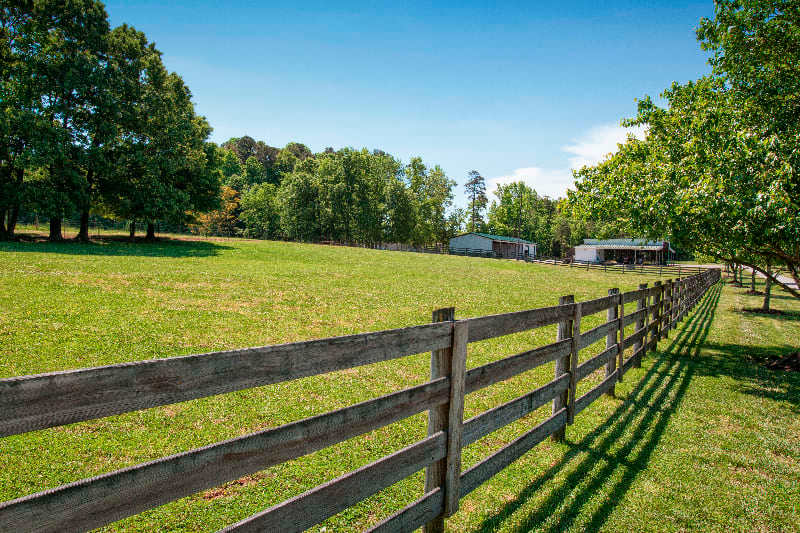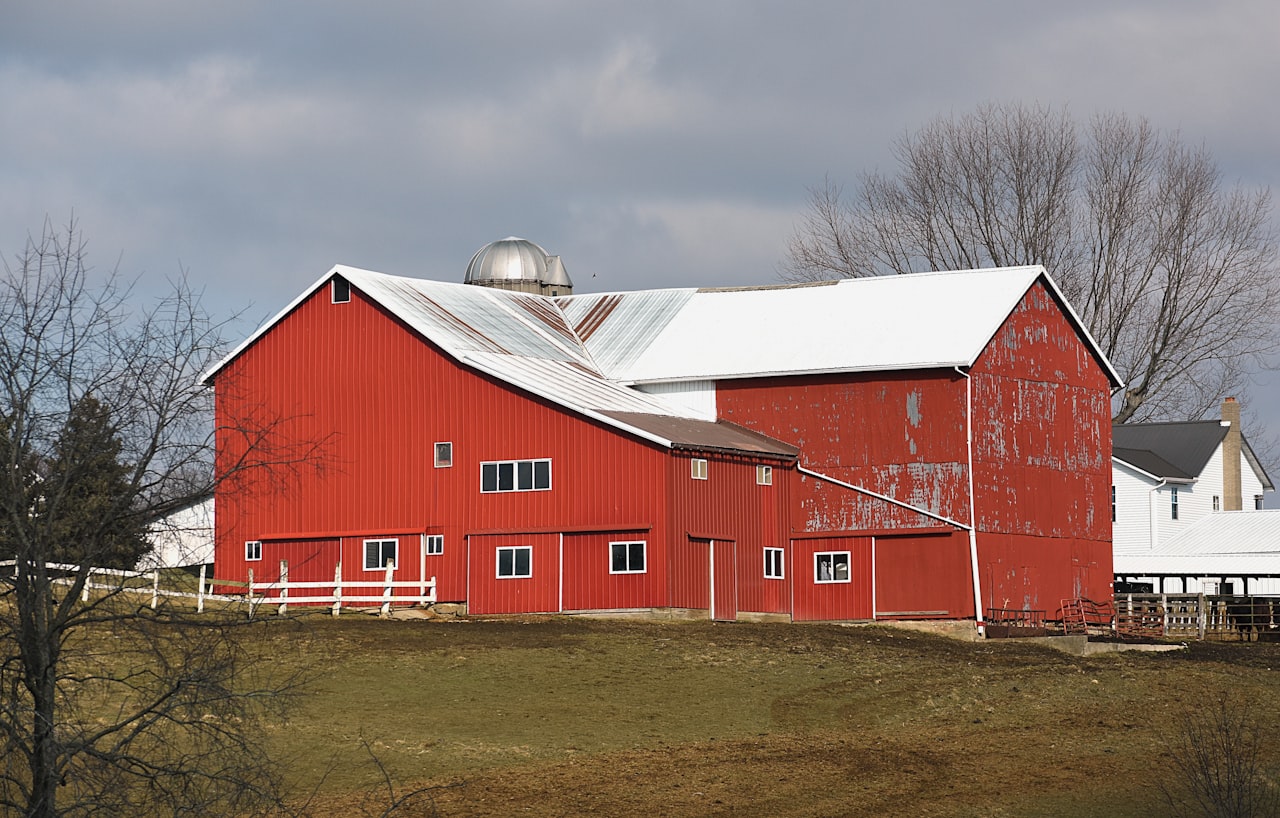Gentle hills dotted with clusters of densely packed trees roll down to a wide pasture. The grass is richly verdant and dotted with golden dandelions. Surrounding this is a 3-rail fence of indeterminate age faded to a stunning silvery-grey.
The grass is lush, the shades of foliage intensely green, throwing deep, cool pockets of shadow. The sun is warm, and two bay mares browse the tall grass along the fenceline followed by a strawberry roan foal.
You might think you are in horse country, and you are. However, this isn’t the Bluegrass State. It is North Carolina, specifically the Piedmont – a fertile, hilly plateau running between the Blue Ridge Mountains to the west and the Coastal Plain. One hundred miles to the east, the Atlantic Ocean carves deep divots in the shore.
In addition to horses, horse barns, pole barns, sheds, dressage arenas (or riding rings), classic Victorian homes, and wineries, expect to see abundant wildlife. This includes bald eagles, swallowtail butterflies, azaleas and rhododendrons, the endangered smooth coneflower (Echinacea laevigata), and that rarest creature of all – the historic but now defunct Piedmont Wagon Company. Located in Catawba County, this is a part of the Piedmont’s equine history that cannot be ignored, even if it is obsolete.

Even the names ring of history: Fox Hollow Farm; Pleasant Garden; Shooting Star; the Landon Farm. Those looking for horse Even the names ring of history: Fox Hollow Farm; Pleasant Garden; Shooting Star; the Landon Farm. Those looking for horse farm and ranch land could do no better than the Greensboro-Triad area. This, bounded by Greensboro, Winston-Salem, and High Point, is distinct from the Research Triangle, or simply “the Triangle” – an area that takes its name from Research Triangle Park.
This latter, a “high-tech” haven located in or near North Carolina State University, Duke University, and the University of North Carolina at Chapel Hill, is a focal point of a younger, highly educated demographic with considerable disposable income. Both areas, and the entire Piedmont at large, offer numerous opportunities to buy existing horse farms/ranches, or to buy large tracts of land in a prime location and start such a venture.
Fortunately, there is more to equine culture than raising, showing, or selling horses – all of which represent seriously hard work. For those who love horses but have a day job, there are guest ranches. A classic example in Dobson offers Hunter and Jumper lessons, boarding, training, trail rides and even horse sales. Less structured, more casual opportunities to simply go horseback riding and enjoy the beautiful countryside also exist, and landowners with a career often choose to operate one of these tourist enterprises – with the help of trained staff, of course.
It isn’t mandatory that your future horse ranch/riding stable/guest ranch follow a format, however. Combine several genres. Raise (and sell?) your own Buckskins and Appaloosas, or Chestnuts, Bays and Palominos. Build a riding ring and a riding trail, curving down among clusters of trees to a stream or small pond. Add log cabins for a rustic touch, and offer them as rentals. Plant dogwood and redbuds around the front and rear.
Hang horseshoes over the door? Absolutely. But don’t get too extravagant. You will find, as you go along, that raising horses or even offering them as vehicles to novice riders is harder work than you might expect. Even with help, there is always one last thing to do. Horses need regular exercise, clean stalls, and fresh oats and water daily. Barns, fences, and outbuildings require almost constant repair. There is nothing gentlemanly about sweat, but it mixes nicely with the smell of horseflesh and new hay.
Horses themselves are a big investment, not only of time and effort, but also of patience. In fact, one horse-farm owner compared his job to running a boarding school.
“There is the constant fear of a crippling accident coupled with the sometimes inexplicable likes and dislikes of horses. This can make caring for them like calming overactive, over-imaginative children!”
Yes, horses can be just that temperamental, and if you don’t have solid coping skills you might want to consider raising Golden Retrievers instead.
In addition to a non-gentlemanly addiction to hard work, and a considerable bankroll, you should also practice your diplomatic skills. You will need to hire workers at affordable rates. This means that they will not always be knowledgeable – not only about horses, but about ordinary skills, so you will have to double as a carpenter, union negotiator, farmer, and veterinarian.
Don’t let any of that dissuade you. There is nothing like waking to the sight of a summer meadow filled with peacefully grazing horses. In fact, it is so Zen you may want to go right back to bed.
But don’t. Work awaits.













